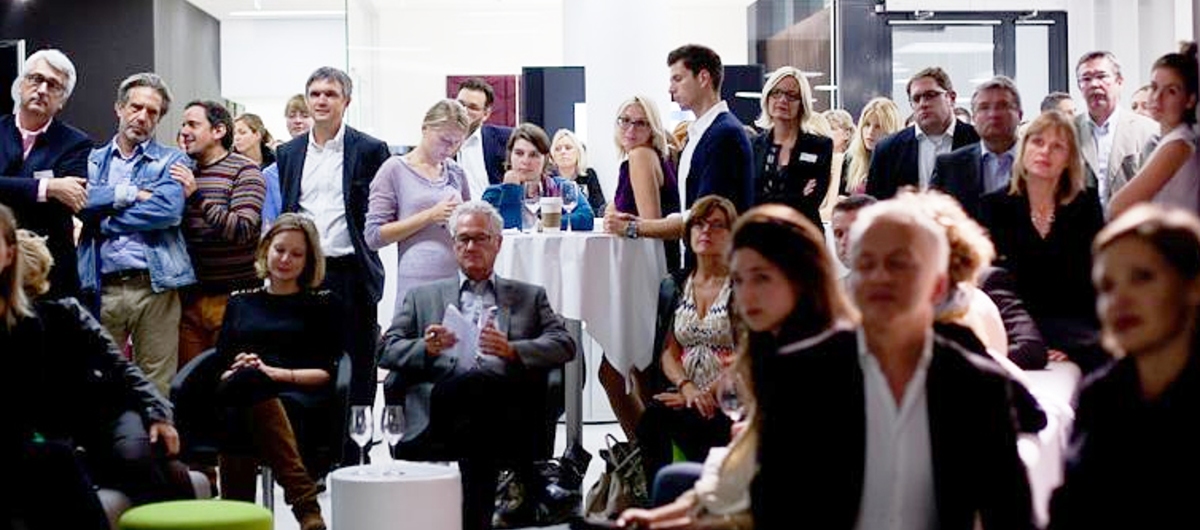The office of the future is a ‘we place’
‘To put it more provocatively, the only reason you will go to your office in the future is to see other people,’ said Neubert. ‘It’s no longer about going there to be seen at nine o’clock... but you collaborate with the others. This is the only reason offices are needed. The office is a we place.’
Collaboration is key in the office of the future, and the concept of open innovation presents a new vision of openness which will herald more networks to be built beyond the boundaries of the business. Knowledge and ideas will, and are already, sourced from all corners.
Cult Offices
More and more, financial products - like knowledge itself - are intangible, creating a strong need to find other ways to project a company's culture, so the future will hold a great need to emotionalize the places we work. 'The office is the dress of the company,' said Neubert, and asked the audience to consider the difference between wearing gardening gear and evening attire. 'You feel completely different.'
The office (more than ever) will be the space which influences employees, customers and suppliers. By creating a space that is reflective of a company's values, the people surrounding that firm are provided the right stage for their work.
The War on Talent
Partly because they are flexible and can work anywhere, digital natives have more expectations about where they work. ‘You can’t make them sit in a chicken battery and say ‘this is your desk, make it work’,’ said Neubert. ‘They’ll laugh at you and say ‘well, I’m taking my bicycle and going to a coworking space.’’
In the same vein, new generations of workers no longer settle simply for a good position, but must instead be a position in a company with which they identify on a personal and emotional level. Office design will need to be stimulating and creative in order to attract and keep talent.
Technology is changing the way we work
Technology - unsurprisingly - is also a megatrend shaping our work practices. Advancing technology means increased mobility, allowing us to displace ourselves - both within and outside of the office - without disruption. But more complex technologies have also allowed the creation of more social and human technologies, placing the focus (back) on people. Connectivity and collaboration are thus increasingly important factors when thinking about workspace, and will drive the trends towards versatile ‘we spaces’.
Technological advancement has also made us independent of paper and desktop computers, revolutionizing the way we work, and the way we work together.
Workplaces as centers of education
Another main trend is that employees will spend less time working for a single company - and the number of employees who remain at a single firm for over a decade will become fewer and fewer.
‘There is a far higher turnaround rate [of employees]... recruiting becomes more and more difficult, and the time window that companies have in order to bring people up to speed is getting smaller,’ said Neubert
For this reason, constant re-education and on-the-job training is becoming imperative. The organization will thus become a learning environment to constantly school and re-skill its employees. Companies will need to create work environments that facilitate the exchange of knowledge and experience. It will be the role of firms to train, educate and teach the people working for them in a very productive and efficient way, and ‘this has nothing to do with old offices anymore,’ reaffirms Neubert.







